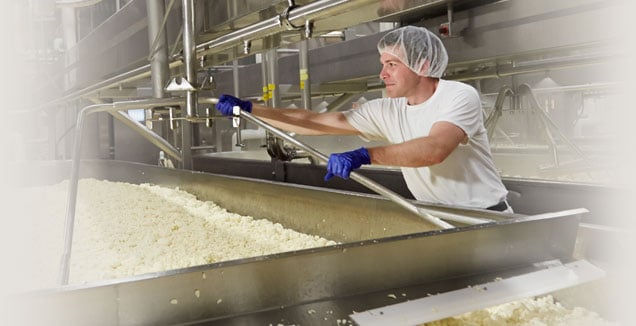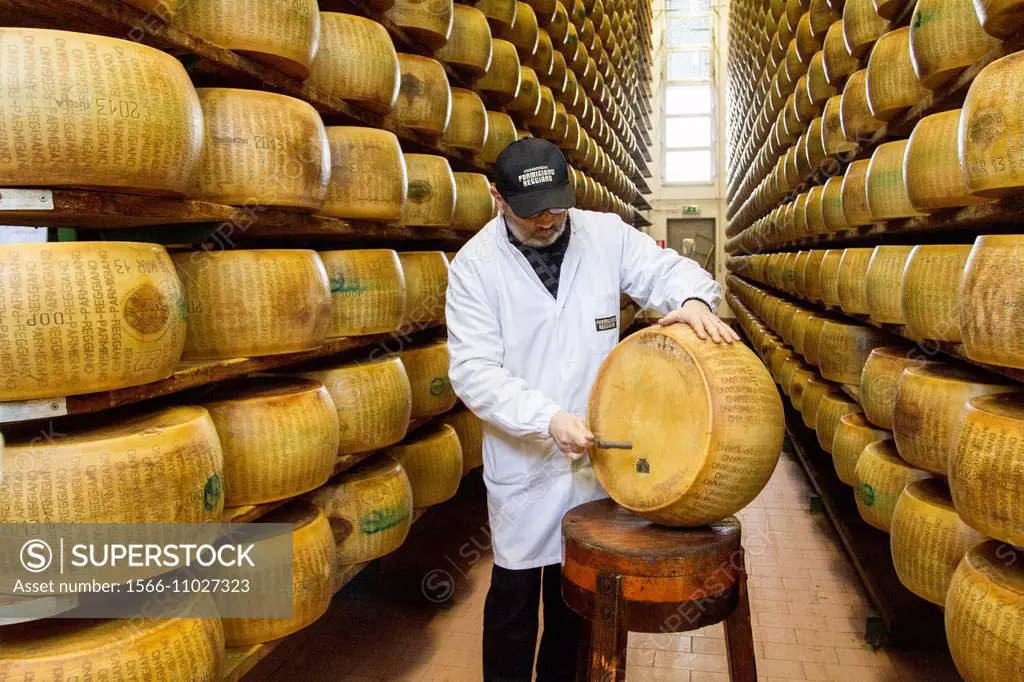Order Cheese for Sale Online Melbourne's Trusted Cheese Makers
Order Cheese for Sale Online Melbourne's Trusted Cheese Makers
Blog Article
Comprehending the Scientific Research Behind Cheese Production: From Milk Choice to End Product
The intricate process of cheese manufacturing begins with the cautious choice of milk, a choice that profoundly impacts the final product's flavor and structure. Recognizing the pivotal function of germs in fermentation exposes just how these microbes transform lactose right into lactic acid, a key active ingredient in creating celebrity's personality. Following this, the coagulation procedure transforms fluid milk right into curds, setting the stage for aging, where truth intricacy of tastes emerges. Quality control stays important at every phase, yet the subtleties of these procedures might still hold surprises that warrant additional exploration.
Milk Choice Process
The option of milk is an essential action in the cheese production procedure, as it straight affects the flavor, texture, and high quality of the final item. Different elements should be considered throughout this selection, consisting of the source of the milk, the type of the animals, and their diet. Cow's milk, goat's milk, and lamb's milk each possess distinctive homes that add to the special qualities of various cheese ranges.

In addition, the nutritional web content of the milk, influenced by the animal's diet plan, can alter the cheese's final characteristics. Premium milk, sourced from healthy pets, guarantees an exceptional cheese product, stressing the value of strict quality control actions in the milk choice process. Therefore, careful factor to consider in milk option is essential for effective cheese manufacturing.

Role of Bacteria in Fermentation
Following the cautious selection of milk, the fermentation procedure plays an essential function in cheese manufacturing, where germs are presented to transform the milk right into cheese. The primary function of these bacteria is to transform lactose, the sugar present in milk, right into lactic acid. This acidification not just changes the pH of the milk but also plays an important role in flavor development, appearance, and conservation of the end product.
Lactic acid bacteria (LABORATORY), such as Lactococcus and Streptococcus species, are typically utilized in cheese manufacturing because of their capability to flourish in milk and their contribution to the fermentation process. The metabolic tasks of these bacteria lead to the manufacturing of different metabolites, including taste compounds and antimicrobial materials, which inhibit perishing organisms and pathogenic microorganisms, thus improving cheese safety.
Furthermore, the fermentation procedure affects the general features of the cheese, including its fragrance, taste, and texture. Various stress of microorganisms can pass on distinctive flavors and contribute to the unique profiles of different cheese types. Hence, the selection of bacterial societies is a vital action in accomplishing the preferred cheese quality and consistency.
Coagulation and Curd Development
In the cheese manufacturing procedure, coagulation notes a crucial transition from liquid milk to solid curds. This process is often enhanced by the acidic atmosphere created by lactic acid bacteria, which further help in coagulation by lowering the pH of the milk.
The resulting curds are formed as the fluid whey begins to separate. Variables such as temperature level, the quantity of rennet used, and the moment enabled for coagulation are vital in figuring out the structure and quality of the curds. Higher temperature levels and longer coagulation times normally yield stronger curds, appropriate for harder cheeses.
As soon as curds are developed, they are cut right into smaller items, allowing whey to get away more effectively. This step is essential, as it affects the moisture web content and overall features of the final cheese product. Correct management of coagulation and curd development is vital for accomplishing details cheese styles and preferred taste profiles.
Aging and Taste Development
After the curd has actually been developed and whey has actually been drained pipes, the next stage in cheese production is aging, also called maturation. This crucial process dramatically affects the cheese's final flavor, structure, and aroma. Throughout aging, numerous biochemical and microbiological changes happen, affecting the total sensory account.
The aging environment, including temperature and humidity, plays a crucial duty in taste growth. Enzymes and microorganisms present in the cheese help with the malfunction of proteins and fats into smaller molecules, resulting in the formation of amino acids, fats, and unpredictable substances. These transformations add to the intricacy of taste and aroma, with distinctive accounts emerging based on the particular cheese range.
Additionally, the period of aging is crucial; shorter aging periods normally produce milder flavors, while longer maturation cause even more durable and nuanced accounts. Variables such as the this contact form milk resource, cheese type, and specific aging techniques further boost the variety of flavors created. Eventually, aging is a delicate equilibrium of time, environmental conditions, and microbial task, culminating in the unique characteristics that define each cheese variety.
Quality Assurance in Cheese Production
Guaranteeing high standards throughout celebrity production process is crucial for supplying a top quality item that meets customer expectations - cheese for sale online. Quality assurance (QC) encompasses numerous stages, beginning with raw milk selection to the last aging procedure. Each stage calls for precise attention to information to stop contamination and ensure consistency
Throughout milk selection, manufacturers need to assess aspects such as fat content, pH degrees, and microbial quality. Routine screening for somatic cell matters and bacterial tons is crucial to make certain the milk's viability for cheese making. In the production stage, QC actions consist of keeping an eye on the temperature, acidity, and rennet task, which significantly affect appearance and flavor.
As cheese develops, constant sensory evaluations and lab evaluations are conducted to evaluate taste development, structure, and total quality. Any variances from developed criteria necessitate corrective actions to maintain product integrity.
Additionally, paperwork and traceability are essential parts of effective quality assurance, making it possible for producers to track the cheese from farm to consumer. By implementing robust QC protocols, cheese manufacturers can not only improve item quality but check it out additionally construct customer depend on, guaranteeing their location in an open market.

Final Thought
To conclude, the science of cheese manufacturing incorporates several important phases, each directory considerably influencing the end product. The careful choice of milk, the essential role of germs in fermentation, the change of liquid milk right into curds via coagulation, and the aging procedure collectively add to the advancement of special tastes and appearances. Stringent high quality control determines make certain that each cheese variety fulfills well-known requirements, therefore boosting customer complete satisfaction and preserving the integrity of the cheese-making tradition.
Report this page